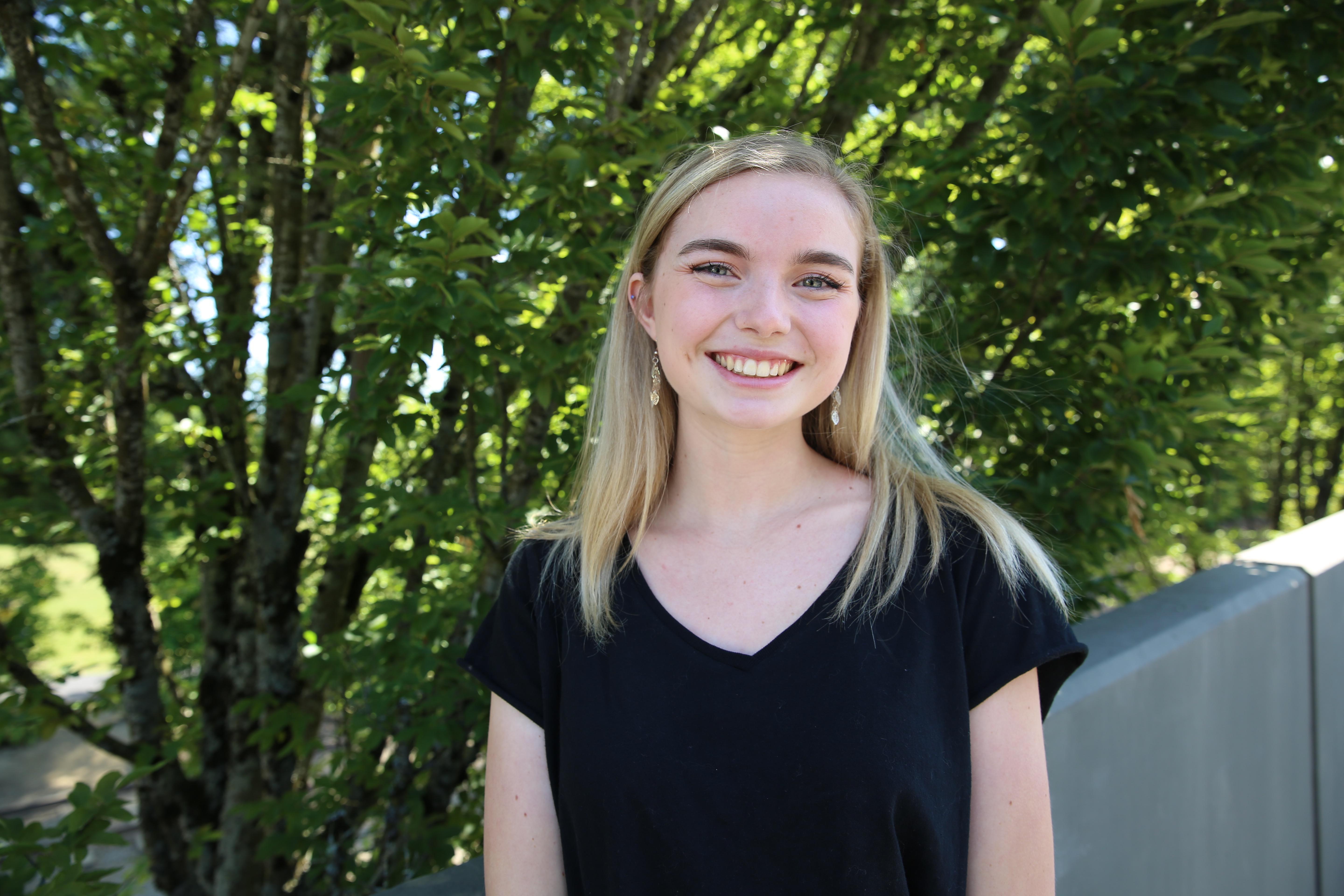
Hailey Hardcastle, one of the students that pushed HB 2191 through the legislature.
Celina Tebor / OPB
A new piece of legislation will allow Oregon students to take “mental health days” off from school, in the same way they can take physical sick days. It will expand the definition of excused absences in schools, and the high school students who propelled the bill through the legislature hope it will take steps toward improving mental health in Oregon.
House Bill 2191 was born out of a brainstorming workshop at the Oregon Association of Student Councils. It’s the first legislation of its kind in the United States. Before HB 2191, students could only have an excused absence for their own or a family member’s physical illness, doctor or dentist appointments, or an emergency. Students in Oregon are allowed up to five excused absences within a three-month period.
Hailey Hardcastle, a Sherwood High School graduate and incoming freshman at the University of Oregon, was one of the students who helped transform the idea into a piece of legislation. She told OPB’s “Think Out Loud” she was partly inspired by mental health issues she saw at her own high school and the impact of suicide in Oregon schools.
“There’s not a single one of my peers that I know that haven’t been affected by mental health,” Hardcastle said.
Hardcastle hopes that this legislation will open up a conversation and destigmatize mental illness.
“I would love to see this law teach young people how to take care of themselves,” she said.
Suicide is Oregon’s second leading cause of death among those ages 10 to 34, according to the Oregon Health Authority. Robin Henderson, the Chief Executive of Behavioral Health of Providence Health and Services and Doctor of Psychology, worked with Hardcastle and other students to push the bill.
One in five people nationally struggle with mental illness, but Henderson said youth are particularly vulnerable.
“We know that that population of kids, especially between 15 and 24, that’s when mental illness really starts to foment,” she said. “You add that to the stressors that are in a school environment, and the fact that this is where students are six, seven, eight hours a day, and you’re going to see higher than that 20%. You’re probably going to see more like 30 to 35%."
Hardcastle doesn’t want a mental health absence to be separated from a physical health absence: She wants them equalized. She said by placing the two on the same level, it will allow people to discuss and recognize mental illness as openly as physical illness.
“Knowing that your school, community and state put your well-being on the same level as physical health, just knowing that that’s out there and that’s the law, I think it’ll make students feel a lot more comfortable,” Hardcastle said. “And I hope that it’ll make teachers and admin a lot more comfortable talking about mental health in the same way, as well.”
Henderson added that mental and physical illness are more intertwined than some might think.
“The mind and the body are connected by more than our neck,” she said.
The idea of mental health days has received criticism, both from legislators and the general public. Some argue that it’s unnecessary, the students are overly sensitive and the days will be abused and used to skip school. Hardcastle believes the criticism simply reflects the problems of society.
“(The critics are) basically claiming that the real world won’t accept us because ... we care about taking care of ourselves,” Hardcastle said. “But I’d love to see a society that doesn’t make us work 110% of the time to be successful.”
Henderson acknowledged that this law will not solve mental illness in schools completely. But she does believe it is a step in the right direction.
“Now we have a conversation,” she said.
If you or someone you know may be considering suicide, contact the National Suicide Prevention Lifeline at 1-800-273-8255 (En Español: 1-888-628-9454; Deaf and Hard of Hearing: 1-800-799-4889) or the Crisis Text Line by texting HOME to 741741.
To hear more from “Think Out Loud’s” conversation with Hailey Hardcastle and Robin Henderson, click the “play” arrow at the top of the page.